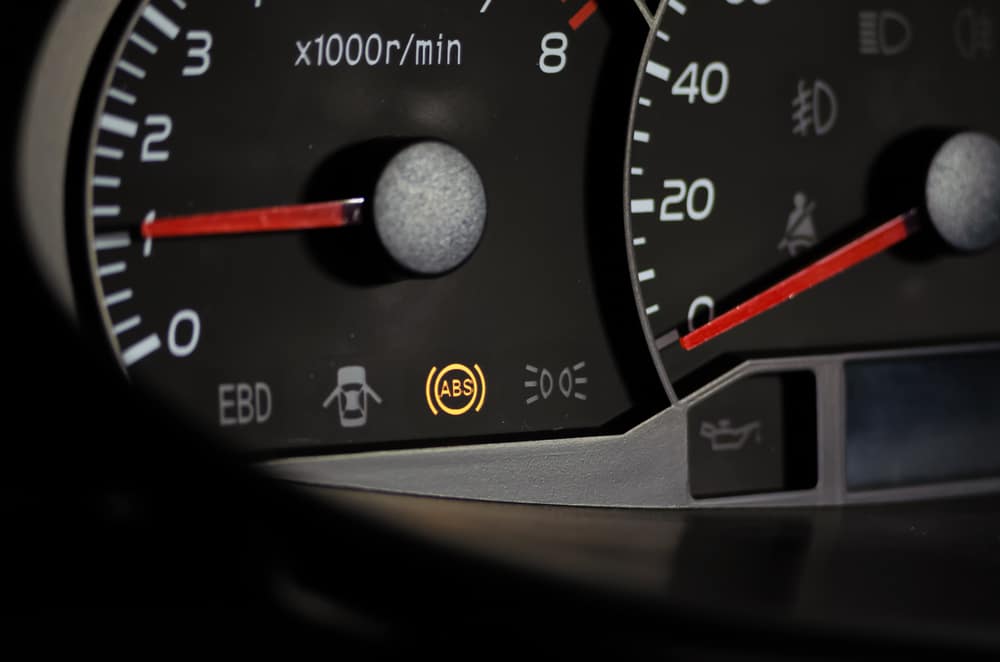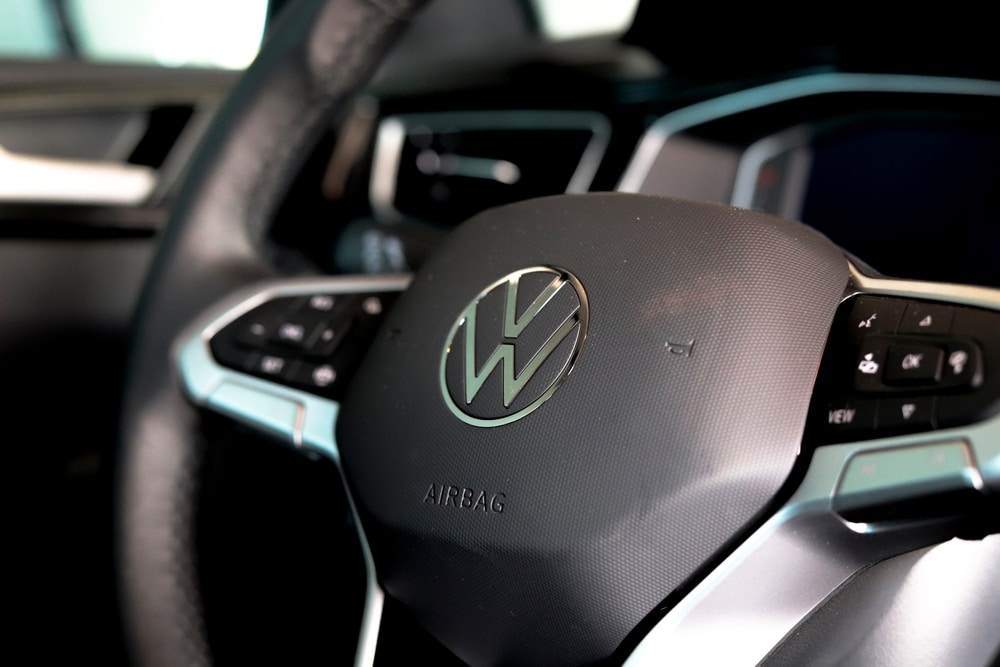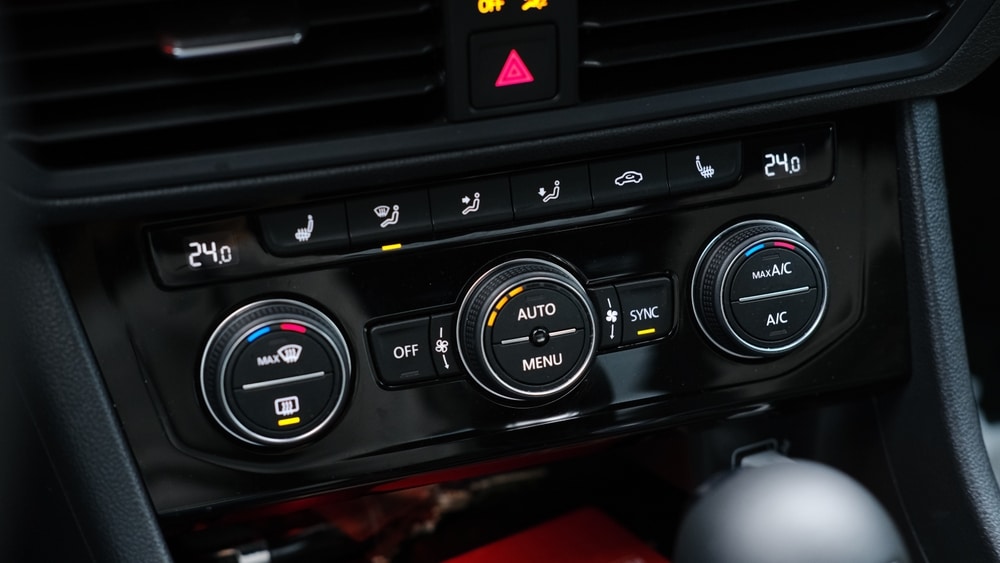Anti-lock Brakes
You’re heading through Wymondham when the vehicle ahead slams on its brakes. You react instantly and hit the pedal hard. But instead of slowing cleanly, the wheels lock, the tyres shriek, and your car skids across the road. The steering wheel feels useless in your hands. And just before the impact, a thought rushes in: “I should’ve had that ABS light checked.” It had been showing for weeks, but you hadn’t got round to it.
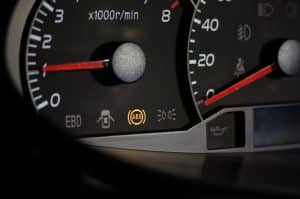
Your anti-lock braking system (ABS) is engineered to stop moments like this from becoming a crash. It doesn’t just help you slow down, it helps you stay in control while you do. Without it, you’re not just risking longer stopping distances. You’re risking the ability to steer out of trouble altogether.
At CSN Autos in Wymondham, we’ve helped countless Norwich-area drivers resolve ABS issues before they become emergencies. This system relies on precise signals, maintained mechanics and fast-moving hydraulics. When something in the loop breaks down, it needs expert diagnostics and a skilled hand.
In this guide, we’ll walk through what ABS is really doing behind the scenes, how it works in an emergency, and when you need to get it checked.
Let’s dive in.
How ABS Helps You Stay in Control When It Really Matters
The anti-lock braking system (ABS) is designed to stop your wheels from locking when you apply heavy braking. Its main goal isn’t necessarily to shorten stopping distance; it’s to help you keep control while braking sharply.
When ABS isn’t active and you brake forcefully, the wheels can seize. That’s when the tyres stop turning and traction is lost. Without that grip, your ability to steer disappears too. If you’re trying to avoid an obstacle, swerve around a cyclist, or react to a hazard, that loss of steering makes it almost impossible. ABS helps prevent that by releasing and reapplying brake pressure at high speed, keeping the wheels turning just enough to hold contact with the road.
It’s a system that doesn’t just help you stop, it gives you the best chance of staying in control when you really need it.
What Your ABS System Does When You Brake Sharply
Modern ABS systems are constantly monitoring your vehicle’s wheels — ready to respond the second something isn’t right. During day-to-day driving, you won’t notice ABS being there. But the moment a wheel begins to lock during braking, ABS steps in instantly.
Each wheel is fitted with a sensor that tracks its rotation speed. These readings are sent to the ABS control unit, which constantly compares them. If it detects a sudden drop in one wheel’s speed — suggesting it’s about to lock — it signals the ABS modulator to adjust brake pressure. The system reduces pressure just at that wheel, then increases it again as grip returns. This happens several times a second, faster than you could ever react yourself.
If the ABS activates, you’ll likely feel a fast pulsing through the brake pedal. That’s the system doing its job, helping the tyres maintain contact with the road surface and keeping you from skidding.
But if a fault develops in a valve, ABS sensor, modulator or the wiring that connects them, the whole system can go offline. When that happens, your ABS light will stay on. If it does, call CSN Autos in Wymondham on 01953 425983 — our team will carry out a full diagnostic evaluation and pinpoint the exact problem fast.
ABS Components: The Parts Behind the Protection
ABS is made up of several interconnected parts, each playing a key role in keeping the wheels from locking up. Here’s where those parts are found and what they do:
- Wheel speed sensors – These sit on each wheel, often by the hub or brake disc. Their job is to constantly monitor how quickly each wheel is turning and report back to the control unit.
- ABS control unit (ECU) – Usually located under the bonnet, this is the brain of the system. It analyses the speed data and calculates whether the pressure needs adjusting at any wheel.
- Hydraulic modulator or ABS pump – Found in the engine bay, this component manages brake pressure during ABS activation. Using valves and a pump, it can rapidly reduce, hold, or reapply pressure as needed.
- Brake valves and hydraulic lines – These are built into the modulator and respond within milliseconds during hard braking. By adjusting fluid pressure precisely, they help prevent the wheels from locking.
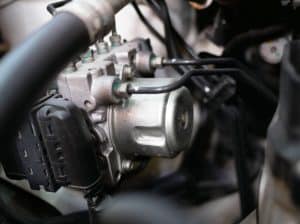
At CSN Autos in Wymondham, our technicians are fully trained to work on every part of your vehicle’s ABS system. If your ABS light is on or braking feels unpredictable, call us on 01953 425983. For more insight into how braking works, check out our guides on Brake Pads, Brake Discs and The Braking System Explained.
Other Safety Features That Depend on ABS to Keep You Stable
Anti-lock brakes don’t work in isolation. In most modern vehicles, ABS forms the foundation of several advanced safety systems — all designed to help your car stay steady and responsive when it counts. These systems rely on accurate wheel data from the ABS to step in quickly when grip or control is lost.
Here’s a brief summary of what they do:
Electronic Brakeforce Distribution (EBD) – This system actively balances braking effort between the front and rear wheels. It helps prevent the rear wheels from locking up during sudden stops, particularly when the car is heavily loaded or braking force is uneven due to road surface changes.
Traction Control System (TCS) – If your wheels start spinning on a wet or loose surface during acceleration, TCS automatically applies brake pressure to the slipping wheels and reduces engine torque. This helps restore grip and prevent a loss of traction when pulling away.
Electronic Stability Programme (ESP) – ESP comes into play when your car starts to drift off its intended path. It uses selective braking on individual wheels to correct oversteer or understeer, keeping the vehicle on course, especially during swerving or sharp cornering.
All three of these systems rely on real-time ABS input to function correctly. If there’s a problem with any component of the ABS, these linked features can become unreliable or shut down altogether.
At CSN Autos in Wymondham, our technicians are trained to diagnose faults across all of these systems. If you’ve noticed your ABS light, traction issues or instability when braking, we can perform a full system check.
What Can Interfere with Your ABS Working Correctly
Anti-lock brakes are designed to support you when braking becomes critical. But like any system, they’re only effective if everything is working as it should. If something compromises the way it reads data or controls pressure, the safety benefit can be lost in seconds.
One common challenge is poor road conditions. Surfaces like ice, snow or driving on loose gravel can reduce the grip needed for ABS to maintain control. While the system may still help you steer, it can’t defy physics. So even with ABS active, caution is still essential in tough conditions.
Then there are mechanical or electrical faults. If a sensor misreads wheel speed, or if the hydraulic modulator can’t respond in time, the system may fail to engage at all. Often, this is when the ABS warning light appears on your dashboard. It’s the system’s way of telling you something’s not right.
These systems are built for split-second response. If that speed is lost due to a fault, the results can be serious, especially when you don’t have time to think. Call CSN Autos on 01953 425983, and we’ll get the issue diagnosed with expert precision.
Signs That Your ABS System Might Be Failing
When your anti-lock braking system stops working, it often does so quietly. Your standard brakes may still feel normal — until you hit them hard and realise the ABS support isn’t there.
Here’s what to watch out for:
- The ABS light stays on while you drive
It’s normal for the ABS warning light to flick on when you start the engine — that’s just the system checking itself. But if it doesn’t switch off, it means a fault has been detected. The ABS function could now be disabled. Your brakes will still work, but the anti-lock protection won’t. This is a critical issue. Call CSN Autos in Wymondham on 01953 425983 to get it checked without delay. - No ABS action under heavy braking
If your wheels lock and you don’t feel any pulsing or vibration through the pedal during an emergency stop, your ABS may not be functioning. - Multiple warning lights on the dashboard
Sometimes, ABS faults can also trigger the brake warning light. If both lights are showing, it usually points to a wider issue affecting your braking system. Neither should be ignored.
If you notice any of these warning signs, contact CSN Autos in Wymondham. Our specialist technicians will pinpoint the issue fast — before it leads to a loss of control when you need it most.
Don’t Ignore That ABS Light
It’s easy to brush off a dashboard light if your car still feels fine. But when that light relates to your ABS or brakes, ignoring it could put your safety, and others’, at serious risk.
An illuminated ABS light means the system has flagged a fault. While you’ll still have basic braking, the ABS function will be disabled. That means no pressure regulation, no support for steering control during hard stops, and no backup if a wheel locks at speed. Everything might seem normal on a quiet drive through Wymondham, but on a wet or unpredictable road, the difference can be critical.
That warning light could be triggered by anything from a faulty sensor to a wiring issue or hydraulic fault. Once detected, the ABS system may switch itself off as a precaution, leaving you without protection until it’s repaired.
It’s also worth remembering that an ABS light showing on the dashboard will lead to an MOT failure. If the brake warning light is on too, that’s classed as a second major safety fault.
At CSN Autos, we’ve seen how quickly a dashboard warning can turn into a roadside emergency. If your car is alerting you, don’t ignore it. Call 01953 425983 and book a check with our team before it becomes a bigger problem.
ABS Issues? Here’s Why Local Drivers Choose CSN Autos
Your anti-lock braking system is one of your vehicle’s most vital safety features. When it’s working, you might not even realise it’s there. But if a fault develops, it can mean the difference between staying in control or ending up in a collision.
At CSN Autos in Wymondham, we specialise in accurately diagnosing and repairing ABS faults. Our technicians are extensively trained in the latest braking and stability systems, and we use advanced diagnostics to pinpoint problems.
With CSN Autos, you get:
- Trusted service from a multi-award-winning garage (including South Norfolk Small Business of the Year 2024)
- Experienced technicians with specialist ABS expertise
- Clear, honest advice from a local team you can rely on
- 12-month parts and labour guarantee
- Free courtesy car to keep you moving while we work
Call us today on 01953 425983 to book a brake system check or get expert help with your ABS light. We’re here to keep you in control in Wymondham, Norwich, across Norfolk and beyond.
